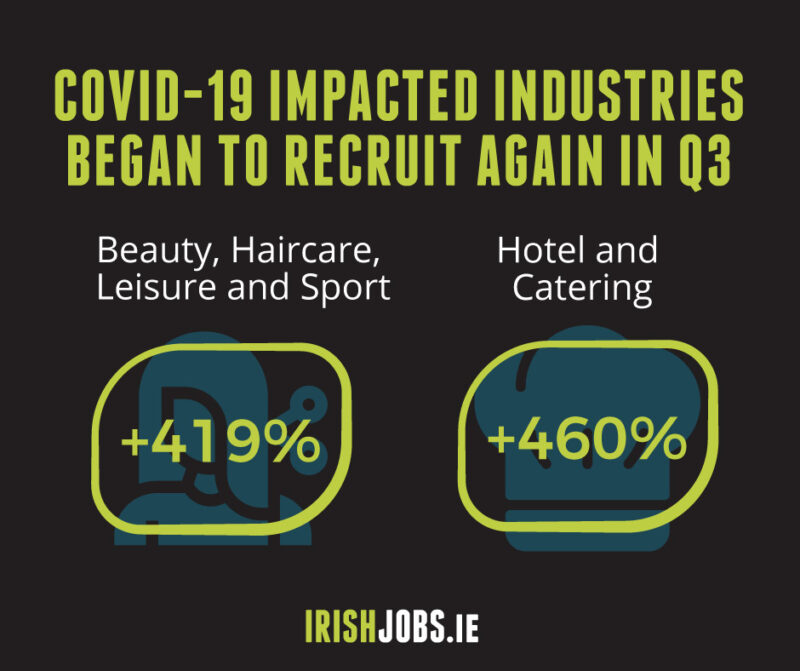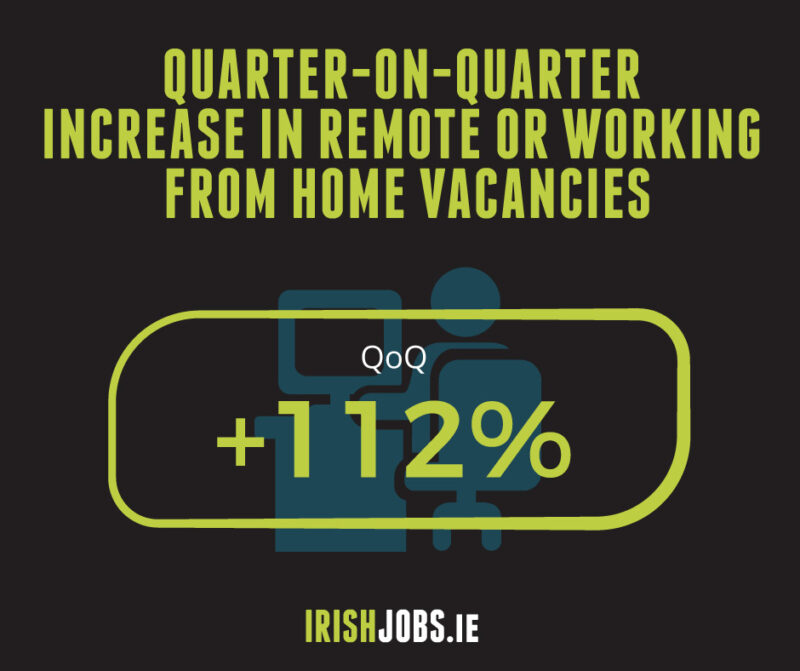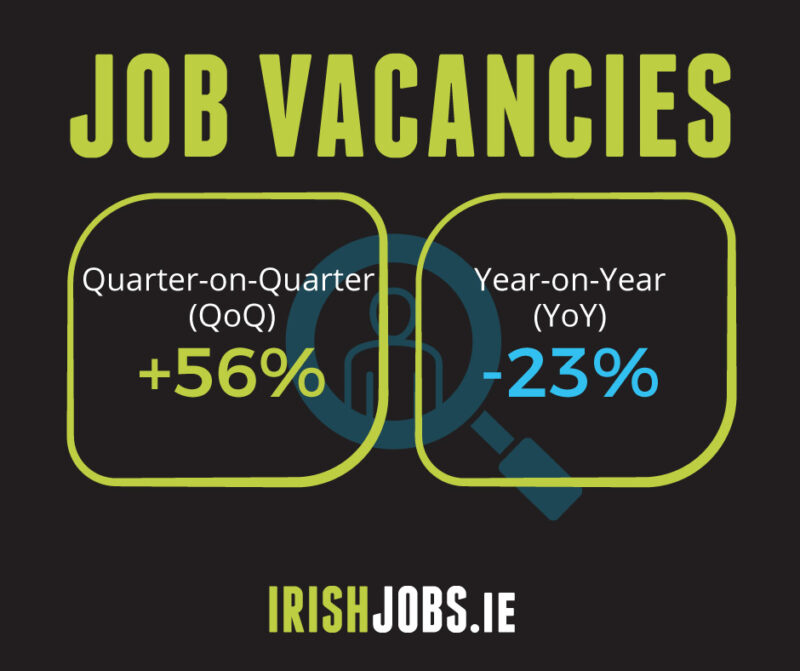Ireland’s employment market experienced a 56 per cent increase in job vacancies for the period of July to September according to our latest Q3 Jobs Index which analyses data from the jobs posted on our platform.
Despite the challenging economic environment, a number of sectors have experienced year-on-year and quarter-on-quarter growth.
Amongst the most resilient sectors are IT (up 83% QoQ), construction and property (up 42%), engineering and utilities (up 29%), Pharma (up 26%) and medicine and healthcare (up 10%).
Other sectors to experience relatively small declines in year-on-year terms and strong quarter-on-quarter growth include marketing (up 220% QoQ), retail and wholesaling (up 102%), manufacturing and production (up 30% QoQ) and education and childcare (up 147% QoQ).
Hospitality & Tourism

The unrelenting commercial challenges facing the tourism and hospitality sector have been well documented in recent months. The Q3 data suggests the sector has endured substantial year-on-year decreases, however, as Covid restrictions were gradually lifted in the summer months, it has recorded strong quarter-on-quarter growth in Q3. Hotel and catering is up 460% on Q2 but down 73% year-on-year. Tourism, travel and airlines are up 75% quarter-on-quarter but down 90% year-on-year. Beauty, haircare, leisure and sport are up 419% quarter-on-quarter but are down 34% year-on-year.
Remote working on the rise

In light of Covid-19 restrictions, Irish employers and employees have been forced to quickly adapt to working remotely. Tellingly, this trend is reflected in the Q3 Jobs Index location data; remote working roles are up 112% quarter-on-quarter and 1264% year-on-year.
Dublin (up 57% QoQ), Cork (up 36% QoQ), Limerick (up 76% QoQ) and Galway (75% QoQ) have all seen strong Q3 growth as the economy has reopened and found a semblance of normality in recent months.
Commenting on the Jobs Index Q3 findings, IrishJobs.ie General Manager, Orla Moran, said:

“2020 has proven to be an extremely challenging and uncertain year for Irish business. The impact of the Covid-19 has undermined some industries more than others; hospitality and tourism businesses continue to fight to remain viable and grapple with planning for very uncertain short and long-term futures. Meanwhile, other high-value export-led industries including IT, health, pharmaceuticals and engineering have all experienced compelling year-on-year and quarter-on-quarter growth.
A 56% growth in job vacancies suggests businesses are adjusting to this backdrop of uncertainty while a recent Central Bank quarterly report suggested that the Irish economy will see a decline of less than half a per cent this calendar year.
“However, this doesn’t tell the full story. Our Q3 data demonstrates a clear divergence between sectors dominated by large multinationals and those consisting of smaller indigenous SMEs. Last week’s cautious ESRI quarterly update further bears this out.
“On Tuesday, we will see the Government publish details of its 2021 Budget. The Budget is expected to build on the strategic goals of the July Stimulus Plan and prioritise job creation and job retention across the board. It is hoped that it will get Ireland back on the path to having ‘safe’ national finances again. It is important that the Government recognises the very real challenge facing many indigenous businesses across Ireland and acts swiftly in bringing in new supports that can enable SMEs meet the unenviable task of planning for an uncertain future.”
IrishJobs.ie has been helping people find the job they want for over 20 years. Our team is delighted to share our job hunting tips and advice with you.
